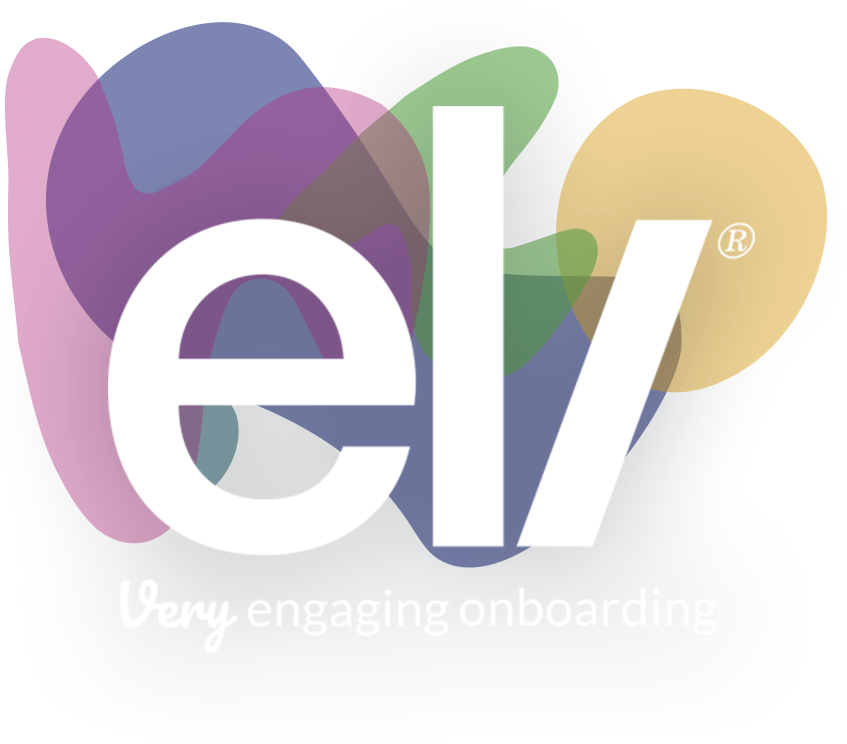Inspiring and supporting hiring managers to deliver great onboarding
 18/04/2023
18/04/2023
Engaging, supporting and inspiring hiring managers, so they can take ownership of onboarding, and deliver a consistently great experience every time, is a key challenge that faces every HR team.
Here at Eli Onboarding, we gathered a panel of experts to discuss the role of the hiring manager in welcoming new recruits to an organisation. We explored exactly what people managers’ responsibilities should be, and how they can best be supported to deliver an onboarding experience that boosts engagement and performance whilst decreasing first year attrition.
What role should managers play in onboarding?
“There are a number of people involved in embedding a new hire within the business, but the hiring manager plays a critical role,” says Ali Harker, Head of TA at Arcus Facilities Management. “They are responsible for making sure that the onboarding experience is a positive one for their new starter. There are a number of activities they support with, from making sure the new starter has everything they need on the first day and ensuring that they’re welcomed, to making sure they understand their role and how that fits within the organisation. If they do the job well, it will improve engagement – and increase the likelihood that that new starter is going to stay.”
Katie Noble, Resourcing Transformation Director at Omni RMS agrees. “Whatever industry we’re working with, whether it’s a quick hire and volume turnaround, or whether there’s 3-month preboarding, it is the manager role that is critical. Our goal when we’re working with clients is to get them to understand that the onboarding objectives have to be retention and productivity. We have the statistics to prove that if new starters have an onboarding experience that involves working closely with their hiring managers, they are going to be quicker to productivity, and they are more likely to stay. We need to get the line managers to own the personal experience, and HR and L&D to own the processes.”
Jon Grimes, Group Head of Employee Experience at DNV emphasises the importance of the human touch that hiring managers can add to the onboarding experience. “Globally, what’s expected of managers and new hires in different cultures is very, very different,” he explains. “Whatever the expectation is – we want to create moments that matter for people. Wherever you are in the world, be it Norway, China or the US, and whatever the cultural differences are, the moments that matter are key. Onboarding is one of those moments for every employee, and line managers are key in creating them.”
Jon Grimes, DNV, talks about the role of the line manager in onboarding
What challenges or barriers do managers face when onboarding new talent?
Laura Illand, Senior Engagement Manager at AML RightSource thinks that a lack of awareness amongst line managers of the importance of onboarding as a tool for driving engagement is a key barrier to success. “If I had a magic wand, managers would own the onboarding experience and HR and IT would empower the managers to create the moments that matter.”
“In reality it does not look like that all the time. In some of our regions, onboarding is seen as an HR activity that’s very transactional – this is the day you get paid, this is the employee handbook. It’s not seen as a moment you’ll remember 6 months down the line – as something that’s made an impact. So trying to educate managers on what the data looks like if you have an amazing onboarding experience – it does impact retention, it does impact engagement, and it will impact the overall performance – it is really key.”
Kirsteen Raitt, Group Recruitment Manager at Firmdale Hotels agrees that communicating the benefits of successful onboarding is important in persuading managers with busy workloads to get involved. “Line managers have got their day-to-day jobs to do and they often feel like they don’t have time to do onboarding. So, it’s about explaining what the benefits are if they do put time into that candidate in pre-boarding and onboarding, so that new recruits will turn up to their induction, will have that psychological contract with you and feel loyal to you. HR needs to keep reminding line managers of the benefits to them, their team and the business of the ongoing onboarding process and keeping engagement at the centre of the process.”
For Laura, creating a clear process where everyone knows their responsibilities and providing supportive resources and tools is also key to breaking down barriers to onboarding success. “There’s a lack of understanding of where the responsibility lies between HR and line managers. Is this really part of my job? So, clarifying this is vital. Then, of course, there’s balancing their role in onboarding as a people manager and their day-to-day work responsibilities which is always a challenge we face. If you don’t have enough time, how do you produce a good onboarding experience? Good tools can help reduce the load for line managers, which I think is really important as well.”
Katie agrees that a clear understanding of responsibilities and process is vital. “Make it as simple as possible for line managers, so they understand exactly what it is they are trying to create. Explain that this is a shared responsibility and make the process as clear and simple as possible. Use technology to support this and include signposts and reminders at each stage.”
What else can we do to encourage and support managers?
Create an online portal
“We’ve given line managers their own Eli Onboarding portal – it’s pretty intuitive, and the tasks they’re responsible for are within their checklist,” explains Ali. “We’ve also made sure that it’s a shared responsibility, so HR, IT and so on also have their checklist and their responsibilities, within their own section of the portal, too.”
Listen, evolve and refine the process
“We listened to the frustrations and challenges of the hiring managers in terms of onboarding and asked ‘What is going to make it easier for you?’ explains Kirsteen. “The approach was to say ‘this is what we can do – does this work for you?’ and then to listen to the ideas that the hiring managers are coming up with. That way you get more buy-in than by imposing things from the top. It’s about working together. It doesn’t change overnight – it’s something you’re constantly reviewing.”
Jon agrees that you have to listen to your managers and evolve your processes accordingly. “We initially had so many trigger emails – now assign a buddy, now do this, now do that – it didn’t work for our line managers. You’ve got to go back and listen. Our people were saying, don’t confuse us, don’t give us too much information, make it quick and easy. Tell me how to do it, and I will then apply that and do it in my own way. You have to start from a user experience perspective.”
Get endorsement from the top
“We had our CEO championing our new onboarding initiative,” Ali explained. “The fact that it’s led from the top, and the CEO is encouraging people to see this as an important responsibility went a long way.”
Dedicated onboarding support from a human
“I think if you’re doing a lot of volume recruitment, it does reach a point where onboarding can become almost a full-time job for HR and some line managers,” says Laura. “So, we are looking at hiring more onboarding specialists into the organisation – so people know who to go to for what, and consistency is built.”
Should we monitor the role of the manager in onboarding, and if so, how?
“With some clients, we do have a system in place – Eli – and it’s working really well – where you can monitor the line manager’s and the new starter’s engagement – and that’s where we know where the issues are. Because if we don’t have that data, if we’re not doing the monitoring then we’re not going to be able to help the line managers pick up on any potential issues that there might be. It shouldn’t be used as a stick to beat people with if they’re not doing certain things – but you’ve got to monitor people’s experience and feelings – and see what’s working and what’s not,” mentioned Katie.
Katie Noble, Omni RMS, discusses how we should track engagement
Jon agrees that data is vital – and that sometimes qualitative data, where you can hear people’s individual experiences, is the most useful. “We do an employee opinion survey – and pulling information from that about people’s response to our onboarding is a great way to help people understand what the impact onboarding, and the line manager, have on a new starter. There's also a whole lot of other data – especially around retention and when people are leaving – but it can actually be more meaningful to hear from individuals and their personal experience of what works and doesn’t and where we can do a tweak here or there to make some great moments for people.”
To discover more about Eli, an experience-led onboarding technology that helps empower managers, and to listen to the webinar in full, get in touch with the Eli team.







